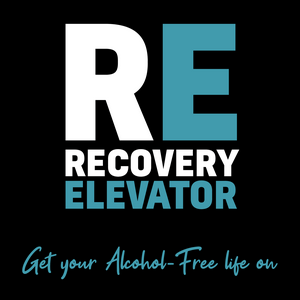RE 520: The Next Party Begins
Today we have Kathy. She is 57 years old from Phoenix, AZ. She took her last drink on October 21st, 2024. Sponsors for this episode include: Better Help – 10% off of your first month Registration for one of our best international sober travel itineraries opens today, as we are going back to Peru October 4th – 15th, 2025. We are starting off in Cusco, then head into the sacred valley, and of course we’re doing the Inca Trail to Machu Picchu. Next Monday our first ever AF Songwriting Course starts at 8pm EST. Connect with other sober musicians and improve your own song writing skills. [02:43] Thoughts from Paul: At the end of last week's episode, I discussed how certain chapters in our lives might be closing, particularly those involving drinking and all the associated antics. As Yung Pueblo poetically expressed, endings are a natural part of life. The universe thrives on cycles, where every beginning anticipates an eventual end. Embrace this closure, grieve it, if necessary, write a farewell letter and consign it to the flames if it helps. But remember, alongside the end of the partying comes the end of hangovers, bloating, puffy eyes, heartburn, and a myriad of other unpleasant side effects. Let yourself mourn the end of this chapter. For me, the cessation of drinking heralded a new beginning in September 2014. Let's explore what awaits after setting the bottle aside—a life free from elevated liver enzymes. Five months ago, I asked our Instagram followers to describe sobriety in three words. The prevailing themes were peace, energy, and presence. I can't predict your future, but I can assure you that whatever it holds, you'll face it with more vitality, tranquility, and mindfulness. This journey is far from solitary, as more Americans are reducing their alcohol intake. So, as one party ends, another begins, brimming with the promise of a healthier, more vibrant life. [06:09] Paul introduces Kathy: Kathy is 57 years old, is divorced and lives in Phoenix, AZ with her husky mix named Mario. She works in big data analytics. For fun, Kathy enjoys walking her dog, hiking, riding a mountain bike, kayak and read. She enjoys memoirs, thrillers and enjoys Quit Lit. Kathy says her drinking was in the moderate category for many years. In her forties she became part of a friend group that enjoyed drinking and spending time on the lake together. Kathy was comfortable letting her hair down and didn’t have any fears of becoming an alcoholic. Kathy did begin to question her drinking after it started noticeably affecting her sleep and how she felt the next day. She explored some Quit Lit and since her drinking didn’t look like the author’s, Kathy decided it wasn’t bad enough to stop completely but would try to cut back a bit and skip days here and there. When Kathy was diagnosed with early-stage breast cancer, the doctors put her on pills she couldn’t drink with. It was a relief to her to have to stop, but was surprised how little support others would have for her not drinking. After her oncologist told her she could drink a little, she started drinking again. A constant cycle of ramping up and ramping down began. After some issues with her white blood count, Kathy had to quit for three weeks awaiting a blood test. She decided to join Café RE for support to quit drinking. Kathy really identifies with gray area drinking and has found stories from other people helpful in continuing her pursuit of quitting drinking. She prefers her life without alcohol and hopes to continue. She says her sleep has improved and she looks forward to lifting weight again, traveling and being cancer-free. Kathy’s parting piece of guidance: if you’re questioning it, just start talking to sober people, join Café RE, seek out more podcasts, whatever. Recovery Elevator Alcohol is shit and we both know it. I love you guys. Café RE RE merch Recovery Elevator YouTube Sobriety Tracker iTunes

